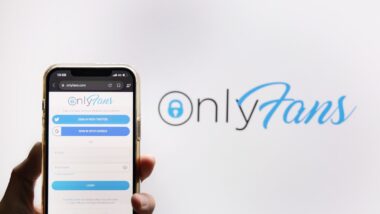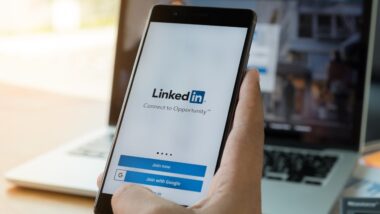
Zoom Video Communications, Facebook, and LinkedIn have been named in a class action lawsuit, brought by Zoom users who claim that the companies eavesdropped on their Zoom conference calls without permission.
Plaintiff Todd Hurvitz says that it was recently revealed that Facebook and LinkedIn eavesdropped on Zoom web conferences and attempted to read and learn the contents of the conversations that were taking place.
The plaintiff maintains that Zoom was installed on his Mac computer as well as his iPhone and he used Zoom’s video communications services via those devices. Through these apps, the social media and networking companies allegedly eavesdropped on his conversations.
The “exploitation” of Zoom users reportedly starts when individuals install the Zoom application software, especially if they used the iOS operating system. Through these applications, whenever the user opens the Zoom software, Facebook reportedly eavesdrops on communication between Zoom users.
“Facebook engaged in that unlawful conduct in order to gather users’ personal information and amass increasingly detailed profiles on Zoom users, which profiles Zoom and Facebook then used for their respective financial benefit,” the Zoom users class action lawsuit posits.
Similarly, Hurvitz claims that LinkedIn also eavesdrops on Zoom conversations in order to collect personal information from users. The plaintiff alleges that LinkedIn and Facebook use this information to disclose Zoom users identities to third parties even though the users were diligent in keeping their identities anonymous while using the Zoom platform.
Hurvitz says he did not consent to LinkedIn and Facebook eavesdropping on his video conferencing calls or his communications with Zoom’s servers. He also maintains that he did not consent to allow Zoom to collect, disclose, or use his personal information.
In addition, Hurvitz complains that Zoom falsely represented the safeguards that were in place to protect users’ privacy. He claims that Zoom concealed, suppressed and omitted various flaws in its products until they were publicly disclosed by third-parties, knowing that the disclosure would harm their business.
Zoom has consistently said that it does not allow third-parties to access any personal information that it collects from users, the plaintiff claims. This statement, however, is not true, according to the Zoom users class action lawsuit.
The plaintiff maintains that Zoom has a long history of “lax security practices and deceptive data privacy practices.” In one public filing with the Securities and Exchange Commission (SEC), Zoom has stated security issues have happened in the past and may again occur in the future, the plaintiff alleges.

Hurvitz notes that in July 2018, it was revealed that a flaw in Zoom meetings could result in the possible exposure of Zoom users’ passwords.
Later, in October 2018, a security company notified Zoom of a security defect that would allow hackers to access the presenter’s desktops and assume control of Zoom meetings.
The plaintiff claims that the subpar security didn’t stop there. In March 2019, a software engineer allegedly told Zoom of a security defect that exposed millions of users to an attack whereby a hacker could access the users’ computers and initiate a web conferencing call without consent.
The Zoom class action lawsuit maintains that Zoom did not fix the defect until four months later and after a consumer advocacy group filed a complaint with the Federal Trade Commission (FTC).
Zoom also allows users to integrate third-party applications which they say would enhance the users’ experience with the platform, according to the plaintiff.
One such application was Navigator – a software which allowed users to access the LinkedIn profiles of those who were on web conferencing calls. According to Hurvitz, Navigator allowed these LinkedIn profiles to be available even if the users wanted this information to be private.
“Defendant LinkedIn gained the ability to provide a meeting host with meeting participants’ LinkedIn details by willfully and intentionally using a recording device to record and eavesdrop on, and by otherwise reading, attempting to read and learning the contents and meaning of, communications between the participants’ computers and Defendant Zoom’s server,” claims the Zoom class action lawsuit.
The plaintiff notes that LinkedIn was able to collect Zoom users’ personal information even if the meeting host was not using Navigator, which allowed LinkedIn to gain access to personal information of all users who were signed into the web conferencing software.
Prospective Class Members include: “All persons and businesses in the United States whose personal or private information was unlawfully collected, disclosed and/or used by Zoom, Facebook and/or LinkedIn upon the installation, opening, closing or use of the Zoom App.”
This is not the first time that a class action lawsuit have been filed against Zoom related to sharing of information to third-parties and privacy violations.
Do you use Zoom for web conferencing? Leave a message in the comments section below.
The plaintiff is represented by Scott R. Drury, Mike Kanovitz and David B. Owens of Loevy & Loevy.
The Zoom Class Action Lawsuit is Hurvitz v. Zoom Video Communications Inc., et al., Case No. 2:20-cv-03400, in the U.S. District Court for the Central District of California.
ATTORNEY ADVERTISING
Top Class Actions is a Proud Member of the American Bar Association
LEGAL INFORMATION IS NOT LEGAL ADVICE
Top Class Actions Legal Statement
©2008 – 2026 Top Class Actions® LLC
Various Trademarks held by their respective owners
This website is not intended for viewing or usage by European Union citizens.















15 thoughts onZoom Users Accuse Facebook, LinkedIn of ‘Eavesdropping’
Add me
I have been using it for work ,and meetings
And since courts shut down every month til the present.
ADD ME PLEASE
Add me
Please add me. Since CoVid19 i have been required to use Zoom for Medical Tele-Health visits